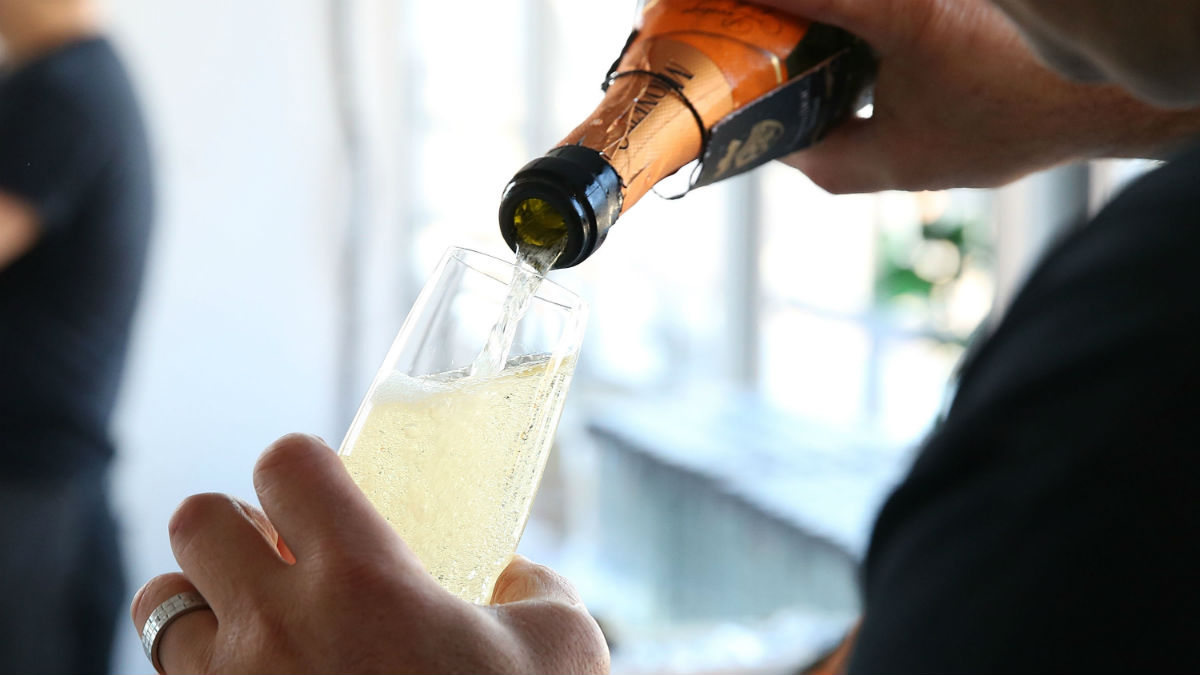Olympics effect inspires Britons to drink more
Market researchers say alcohol sales jumped 8.5% this summer as viewers celebrated victories

A free daily email with the biggest news stories of the day – and the best features from TheWeek.com
You are now subscribed
Your newsletter sign-up was successful
Britain's magnificent tally of medals at the Rio Olympics has led to surging sales of champagne across the country.
Market researchers say alcohol sales rose 8.5 per cent this summer, despite an otherwise flat food and drink market, as Britons toasted the Olympic and Paralympic victories in Brazil.
The increase of 8.5 per cent year-on-year took place across the past four weeks. Sales of Prosecco and Champagne were up 36 per cent, says the Financial Times.
The Week
Escape your echo chamber. Get the facts behind the news, plus analysis from multiple perspectives.

Sign up for The Week's Free Newsletters
From our morning news briefing to a weekly Good News Newsletter, get the best of The Week delivered directly to your inbox.
From our morning news briefing to a weekly Good News Newsletter, get the best of The Week delivered directly to your inbox.
The data comes from the market research firm Kantar Worldpanel, which attributes the rise in alcohol sales to the fact that "consumers have been keen to celebrate Britain's Olympic and Paralympic golden summer".
The spike was assisted by supermarkets offering Olympics-themed discounts on bubbly. Kantar said: "Promotional events across a number of retailers successfully tapped into the nation's celebratory mood."
The data also shows how supermarkets are faring against each other. Tesco is still the biggest grocery retailer in the country, with 28.1 per cent of the market, even though its sales are still declining each year.
However, Tesco's 0.2 per cent decline in the third quarter of 2016, year-on-year, is its best performance since the first quarter of 2014.
A free daily email with the biggest news stories of the day – and the best features from TheWeek.com
Sainsbury's, the next biggest grocer, saw its sales fall 1.4 per cent as it reduced prices, leaving it with 15.9 per cent of the market.
The third-biggest supermarket Asda was left with a 15.7 per cent stake after its sales fell 5.4 per cent, while Morrisons saw its sales drop by 2.3 per cent, leaving it with a 10.4 per cent market share.
-
 Crisis in Cuba: a ‘golden opportunity’ for Washington?
Crisis in Cuba: a ‘golden opportunity’ for Washington?Talking Point The Trump administration is applying the pressure, and with Latin America swinging to the right, Havana is becoming more ‘politically isolated’
-
 5 thoroughly redacted cartoons about Pam Bondi protecting predators
5 thoroughly redacted cartoons about Pam Bondi protecting predatorsCartoons Artists take on the real victim, types of protection, and more
-
 Palestine Action and the trouble with defining terrorism
Palestine Action and the trouble with defining terrorismIn the Spotlight The issues with proscribing the group ‘became apparent as soon as the police began putting it into practice’
-
 Labour shortages: the ‘most urgent problem’ facing the UK economy right now
Labour shortages: the ‘most urgent problem’ facing the UK economy right nowSpeed Read Britain is currently in the grip of an ‘employment crisis’
-
 Will the energy war hurt Europe more than Russia?
Will the energy war hurt Europe more than Russia?Speed Read European Commission proposes a total ban on Russian oil
-
 Will Elon Musk manage to take over Twitter?
Will Elon Musk manage to take over Twitter?Speed Read The world’s richest man has launched a hostile takeover bid worth $43bn
-
 Shoppers urged not to buy into dodgy Black Friday deals
Shoppers urged not to buy into dodgy Black Friday dealsSpeed Read Consumer watchdog says better prices can be had on most of the so-called bargain offers
-
 Ryanair: readying for departure from London
Ryanair: readying for departure from LondonSpeed Read Plans to delist Ryanair from the London Stock Exchange could spell ‘another blow’ to the ‘dwindling’ London market
-
 Out of fashion: Asos ‘curse’ has struck again
Out of fashion: Asos ‘curse’ has struck againSpeed Read Share price tumbles following the departure of CEO Nick Beighton
-
 Universal Music’s blockbuster listing: don’t stop me now…
Universal Music’s blockbuster listing: don’t stop me now…Speed Read Investors are betting heavily that the ‘boom in music streaming’, which has transformed Universal’s fortunes, ‘still has a long way to go’
-
 EasyJet/Wizz: battle for air supremacy
EasyJet/Wizz: battle for air supremacySpeed Read ‘Wizz’s cheeky takeover bid will have come as a blow to the corporate ego’